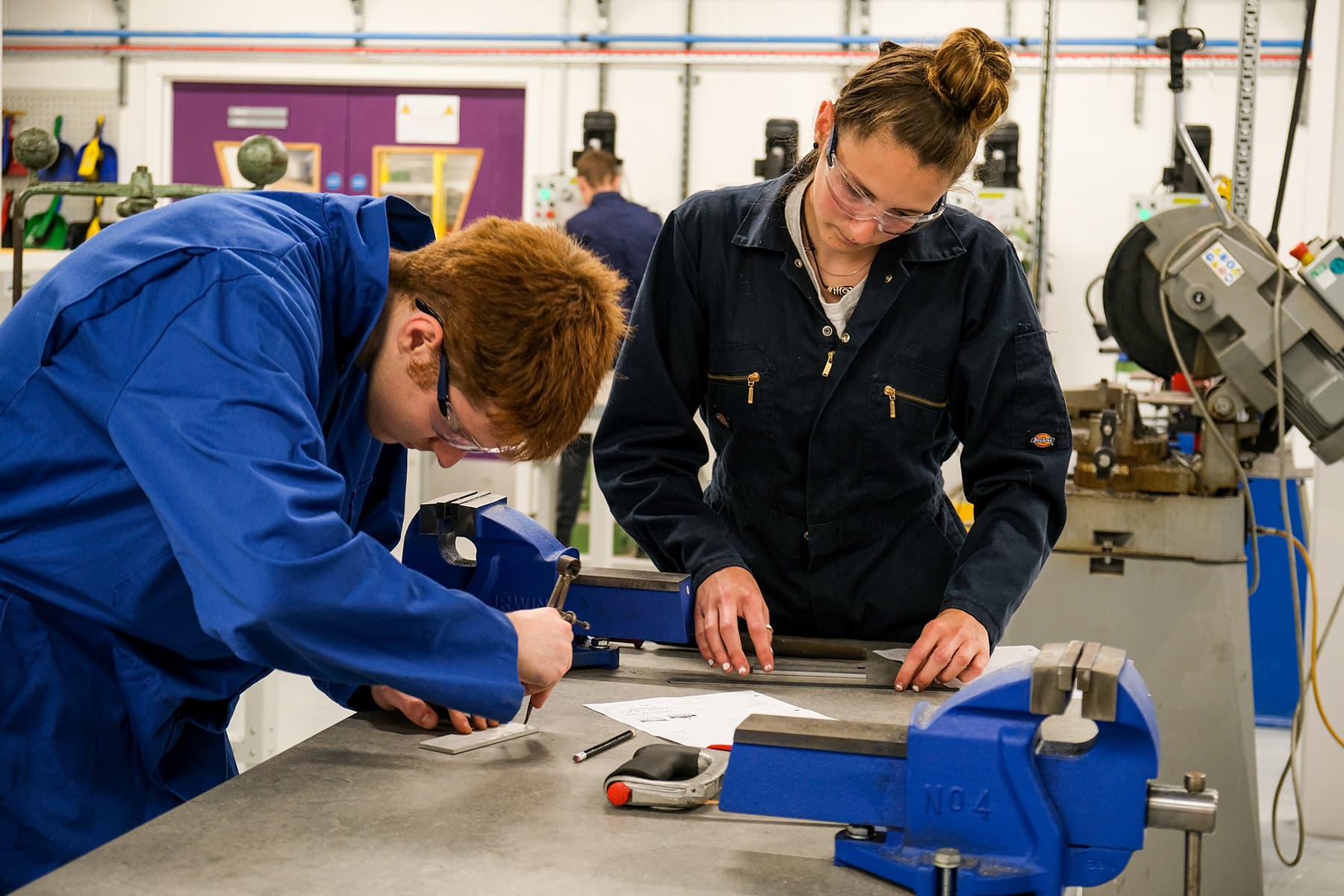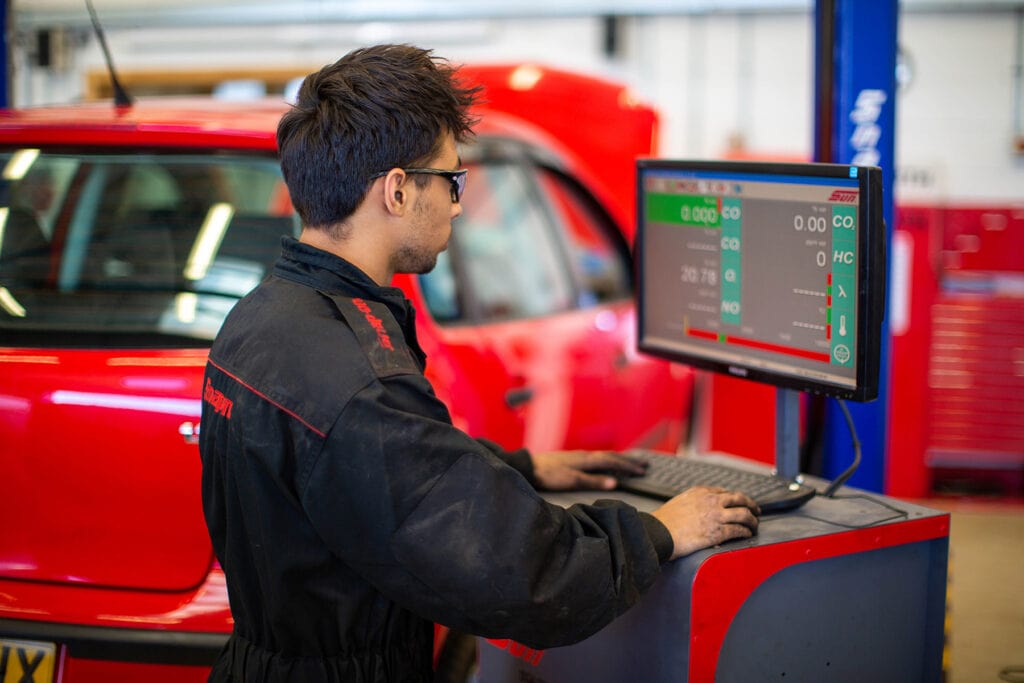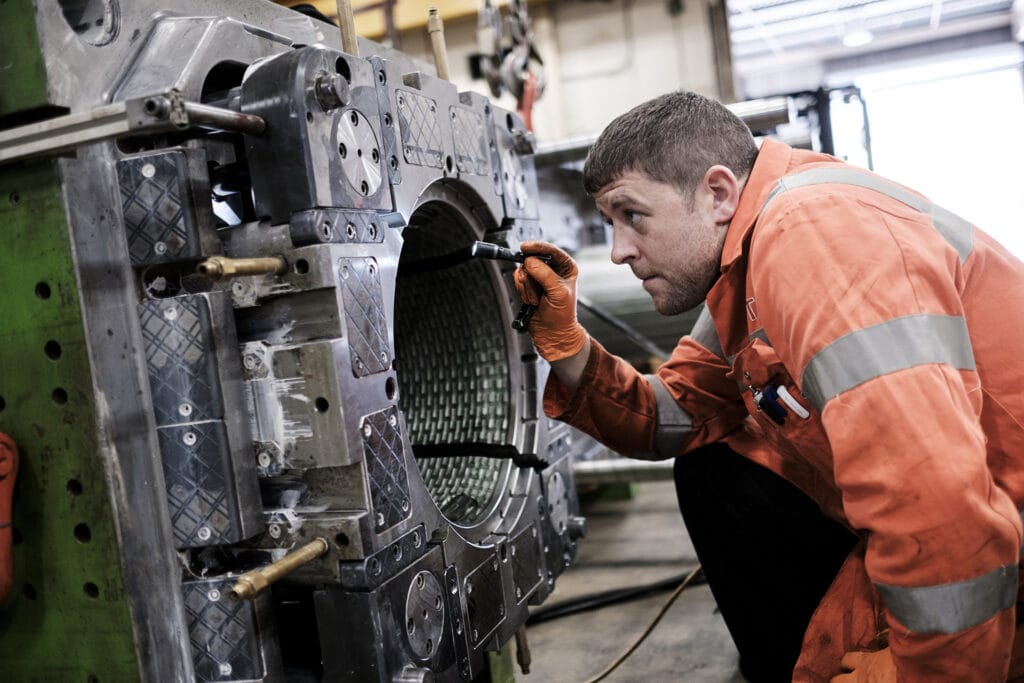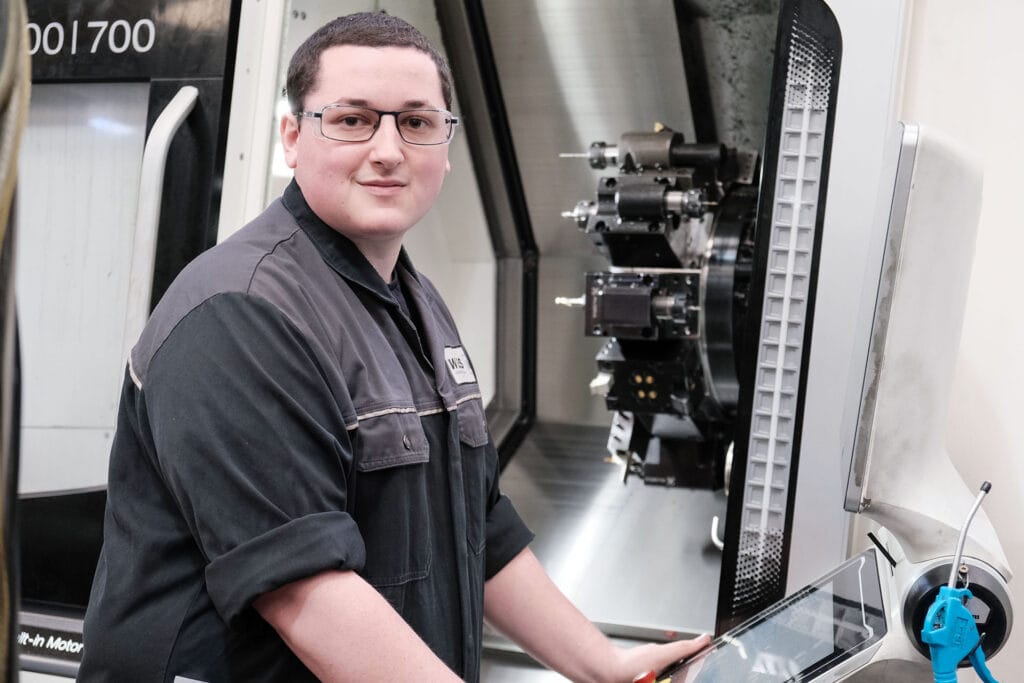From Monday, September 22, all students must ensure they have a valid, working pass for the bus service they are using. Student ID cards will no longer be accepted on board services. Full instructions can be found on our Transport page.
WHY CHOOSE THIS COURSE?
This apprenticeship standard equips individuals with the skills to manufacture and repair a wide range of metal structures relevant to Cornwall’s engineering sector. Examples include balconies and balustrades for residential and commercial buildings, fire exit stairways, and industrial walkways. Apprentices might also learn to work on mining and quarrying equipment, offshore structures like access platforms, and utility sector installations. This apprenticeship covers health and safety, quality control, and environmental protection, ensuring apprentices can work independently or as part of a team in diverse sectors like engineering, construction, and maritime. Ideal for those seeking a hands-on career in metal fabrication, this apprenticeship offers a pathway to becoming a skilled and competent metal fabricator.
Apply for this course
Start date: 03/11/2025
TOP COURSE HIGHLIGHTS
Industry-standard facilities
Highly experienced tutors
Develop skills in line with industry needs
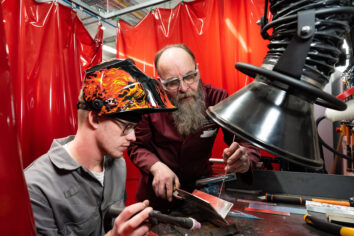
Learn from sector experts
Gain invaluable insights and hands-on experience from industry expert tutors who bring real-world knowledge and expertise to the classroom. Their guidance will help you develop the skills and confidence needed to excel in your chosen field.
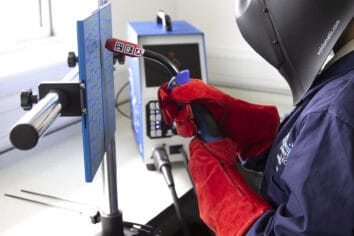
Develop work-related skills
Enhance your practical abilities and gain hands-on experience that directly translates to the workplace. This apprenticeship course focuses on real-world applications, ensuring you are well-prepared to meet the demands of your chosen career.
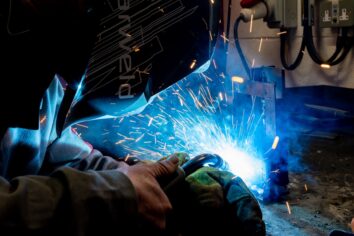
Enjoy professional surroundings
Immerse yourself in a dynamic and supportive environment that mirrors the professional world. This apprenticeship course provides access to state-of-the-art facilities and resources, helping you to thrive and feel confident in your career journey.
WHAT WILL I LEARN?
Knowledge This apprenticeship covers essential knowledge areas such as health and safety regulations, environmental protection, and quality control standards. Apprentices will learn about different types of metals, including steel, aluminium, and titanium, and their properties. They will also gain an understanding of engineering drawings, specifications, and the principles of metal fabrication processes, including welding, cutting, and forming techniques. Additionally, apprentices will become familiar with various tools used in metal fabrication, such as welding equipment (MIG, TIG, and arc welders), cutting tools (plasma cutters, oxy-fuel torches, and angle grinders), and forming tools (press brakes and rollers).
Skills Throughout the apprenticeship, apprentices will develop practical skills in metal fabrication, including the ability to set up and operate various tools and equipment safely and efficiently. They will learn to plan and prepare for fabrication activities, check materials for conformity, and handle resources correctly. Additionally, apprentices will be trained to work independently and as part of a team, ensuring the accuracy and quality of their work while adhering to health, safety, and environmental standards. They will also gain proficiency in using measuring and marking tools like calipers, micrometers, and steel rules to ensure precision and accuracy in their fabrication tasks.
Behaviours This apprenticeship emphasises behaviours such as working safely and responsibly, demonstrating a strong work ethic, maintaining quality standards, and collaborating effectively within a team. Apprentices are also encouraged to show initiative, adaptability, and a commitment to continuous professional development.
Typical Duties that an Apprentice will carry out in the workplace:
- Check materials: Confirming that materials conform to specified grades, dimensions, and thicknesses as identified on detailed engineering drawings.
- Fabricate metal structures: Using techniques such as welding, cutting, and forming to create and repair metal structures.
- Inspect and test fabricated components: Ensuring the quality and accuracy of work by conducting inspections and tests.
WHERE WILL IT TAKE ME?
Completing the Level 3 Metal Fabricator Apprenticeship opens up numerous career opportunities in the engineering and manufacturing sectors. Apprentices can progress to roles such as skilled metal fabricators, welders, or fabrication supervisors. With further training and experience, they may advance to positions like project managers or engineering technicians.
ASSESSMENT ARRANGEMENTS
The End-Point Assessment (EPA) is a crucial component of apprenticeship standards, designed to evaluate an apprentice’s knowledge, skills, and behaviours (KSBs) acquired during their training. The EPA typically includes a combination of practical assessments, professional discussions, and portfolio reviews, ensuring apprentices are fully prepared for their chosen career. This assessment is carried out independently by an End-Point Assessment Organisation (EPAO), ensuring impartiality and fairness. Employers play a key role in confirming readiness for the EPA, supporting apprentices throughout the process to achieve successful outcomes.
EPA (End Point Assessment) methods
- Practical Observation with Questions
- Professional Discussion (Interview) underpinned by a Portfolio of Evidence
ENTRY REQUIREMENTS
Grade 4 GCSE (C) in English and Maths plus one other relevant subject.
Meet the staff, tour the campus and find out about life as a student at one of the best colleges in the country.
